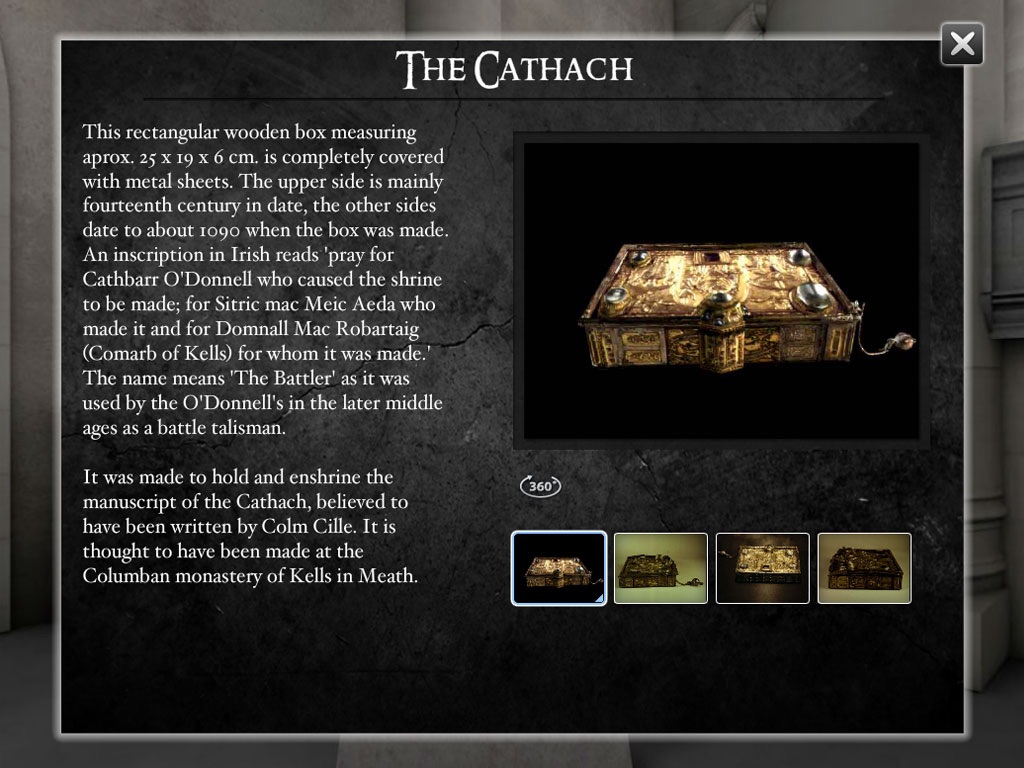
Colm Cille or Columba was the founder of the famous monastery of Iona in the Scottish Inner Hebrides. From the 6th to the 8th century the federation of monasteries initiated by Colm Cille was responsible for a flowering of creativity and craftsmanship which has left us with magnificent works of art such as the Book of Kells and the Lindisfarne Gospels.
In this museum you will find examples of illuminated manuscripts, stone crosses and treasure objects displayed within a series of exhibition rooms or galleries dedicated to each art form. Visitors here can interact with these precious art works in a manner not possible within a real museum.
Manuscripts
In this room you’ll be able to find out more about illuminated manuscripts and see examples of pages from these ancient prayer books details from timeworn near contemporary text tell us what a significant figure Colm Cille was.
The Book of Kells is perhaps the most famous Christian antiquity in the world. Most people are aware of its origin and would even be able to identify some of its exquisitely decorated pages.
Treasury
Scattered in a number of museums and libraries in Britain, Ireland and beyond is a small collection of treasure objects relating to Colm Cille or to the monasteries which belonged to the confederation initiated by him in the second part of the 6th Century. There are a number of what we call ghost objects in this room, those which have been lost to us through looting, fire, floods these have been recreated using written descriptions of similar objects.
High Crosses
This room contains 13 crosses from different parts of Ireland and Scotland brought together for the first time in this virtual space.
Produced by Council for the Curriculum, Examinations and Assessment (CCEA) in partnership with the Nerve Centre and Culture Company.
© CCEA 2013, www.ccea.org.uk



